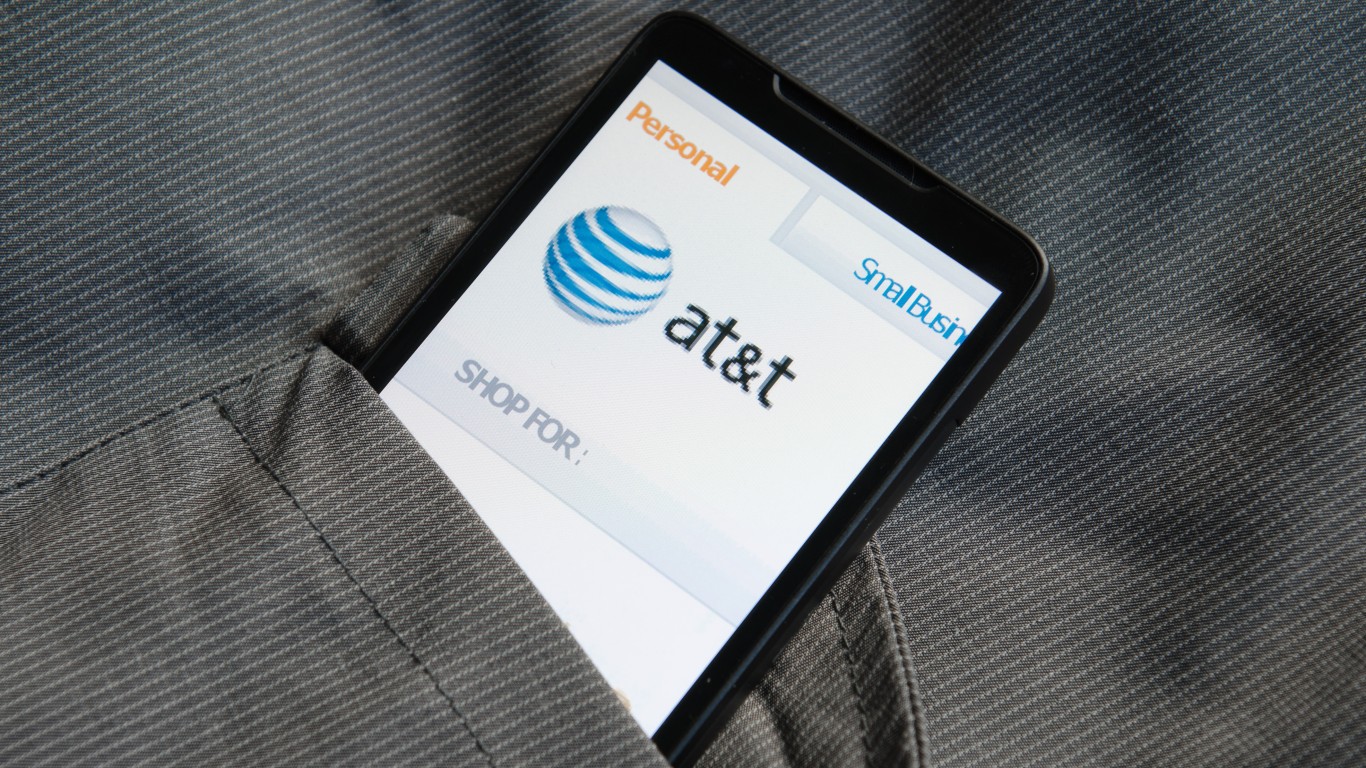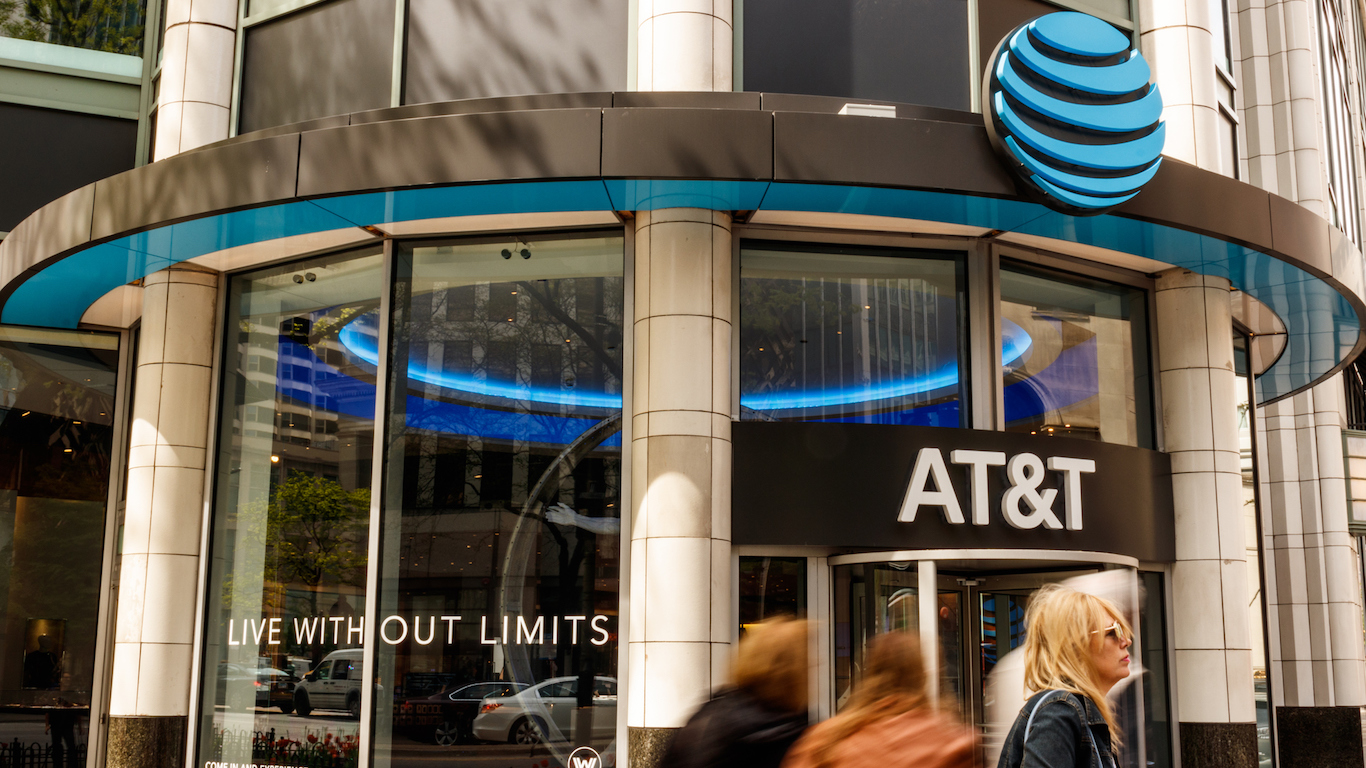
AT&T Inc. (NYSE: T) is joining the streaming service wars with the official release of its HBO Max service. The service has been a long time coming, and with it AT&T is adding another key revenue stream. This, along with some other moves, further secures the telecom giant’s financial position.
AT&T’s stock price gained a little in response to the release, but it has been building momentum since mid-May. However, the Dow Jones industrial average and S&P 500 have outpaced AT&T in recovering from the COVID-19 slump.
Despite the stock’s underperformance, AT&T is making big strides financially to weather the pandemic. AT&T is improving its balance sheet and credit structure, and is also leaning on its rock solid dividend.
Paying Dividends
AT&T has historically paid one of the biggest and most consistent dividends in the stock market. It’s worth noting that rival Verizon Communications (NYSE: VZ) pays a comparable dividend. These dividends are a major differentiating factor that separate the telecom giants from the rest of the stock market.
AT&T stock has dropped significantly from its multi-year highs in November, and with that drop came the questions. When COVID-19 hit, investors questioned AT&T’s ability to pay the dividend going forward, as well as the firm’s financial stability.
Should investors be worried about AT&T cutting its dividend in the near future? Management answered with a resounding “No” in its first quarter report. Executives claimed that they would ensure the financial security of the company, especially the dividend, and they seem to be doing just that.
AT&T’s COVID-19 update in April demonstrated that the company was in a financially strong position. Looking at the books, it had around $9.96 billion in cash and cash equivalents at the end of the first quarter. Also the company generated $8.9 billion in cash from operations and $3.9 billion in free cash flow.
At the same time, AT&T announced a $4 billion accelerated stock buyback plan in March of 2020. The company has since canceled that plan, which was to be conducted during the second quarter.
AT&T pays its common shareholders a 6.5% dividend yield, which is significantly higher than many companies in telecom, communications and media. The dividend payout ratio is 23.6%, based on cash flow, or 58.3% on a trailing 12-month basis.
Financial Security
AT&T recently announced how it plans to de-risk its capital structure by extending its debt maturities at historically low coupon rates. Overall, this is not a bad plan with interest rates criminally low.
To shore up its financial position, the telecom giant closed the sale of €3 billion of its Global Notes due in 2028, 2032 and 2038. At the same time, AT&T announced that it has settled the combined principal of $12.5 billion of its Global Notes due 2027, 2031, 2041, 2051 and 2060. The total of these issuances is worth roughly $15.8 billion.
In turn, AT&T intends to use the proceeds from these issuances to prepay its upcoming debt maturities. This is extremely clever in taking advantage of historically low rates to pay down more expensive and near-term debt.
As for the specifics, AT&T is redeeming in full all the outstanding principal of six series of bonds totaling about $8.6 billion and term loans totaling $6.3 billion. The total principal of these prepayments comes to $14.9 billion.
AT&T’s management earlier mentioned in its first quarter report that it was taking steps to improve the company’s credit structure. Ultimately, these transactions are consistent with the goal of “improving its credit quality even as it remains committed to paying a dividend to its shareholders and investing in its growth areas.”
Looking at the 2020 full year, management expects that the dividend payout of free cash flow ratio will be in the 60% range and is targeting the low end of that range. Ultimately, this gives AT&T the flexibility to continue to reduce its debt for the time being.
Management deserves credit for looking to the long term, staying consistent, and weathering this storm.
Thank you for reading! Have some feedback for us?
Contact the 24/7 Wall St. editorial team.
 24/7 Wall St.
24/7 Wall St.


